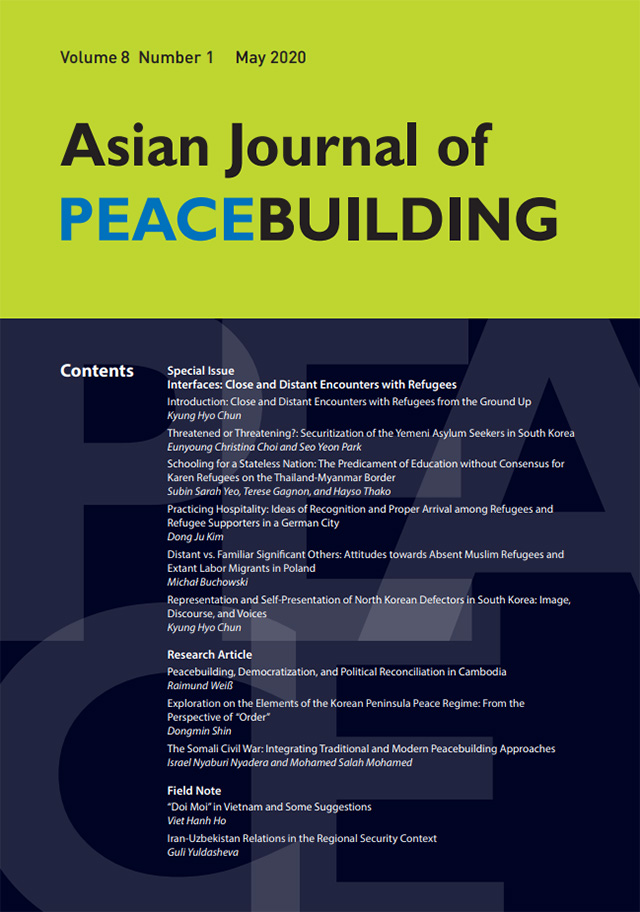This article addresses the issue of schooling for refugees, as members of a stateless nation, in the context of Karen refugees in Thailand. The authors used ethnographic methods of in-depth, semi-structured interviews and participant observation with over 250 residents of Mae La refugee camp. Our conceptual framework draws on theories of pedagogy for liberation and grassroots development. We found that, due to overlapping sources of authority with divergent visions of the future for refugee learners, the existential crisis of being members of a stateless nation is the most pressing issue for education to address. We suggest that a top-down approach to refugee education relying on technical solutions, while ignoring issues of history, power, and meaning-making, will ultimately fall short of being fundamentally transformative.
Back Issues
Special Issue: Interfaces: Close and Distant Encounters with Refugees
Schooling for a Stateless Nation: The Predicament of Education without Consensus for Karen Refugees on the Thailand-Myanmar Border
Subin Sarah Yeo, Terese Gagnon, and Hayso Thako pp. 29-55
PDF Download

